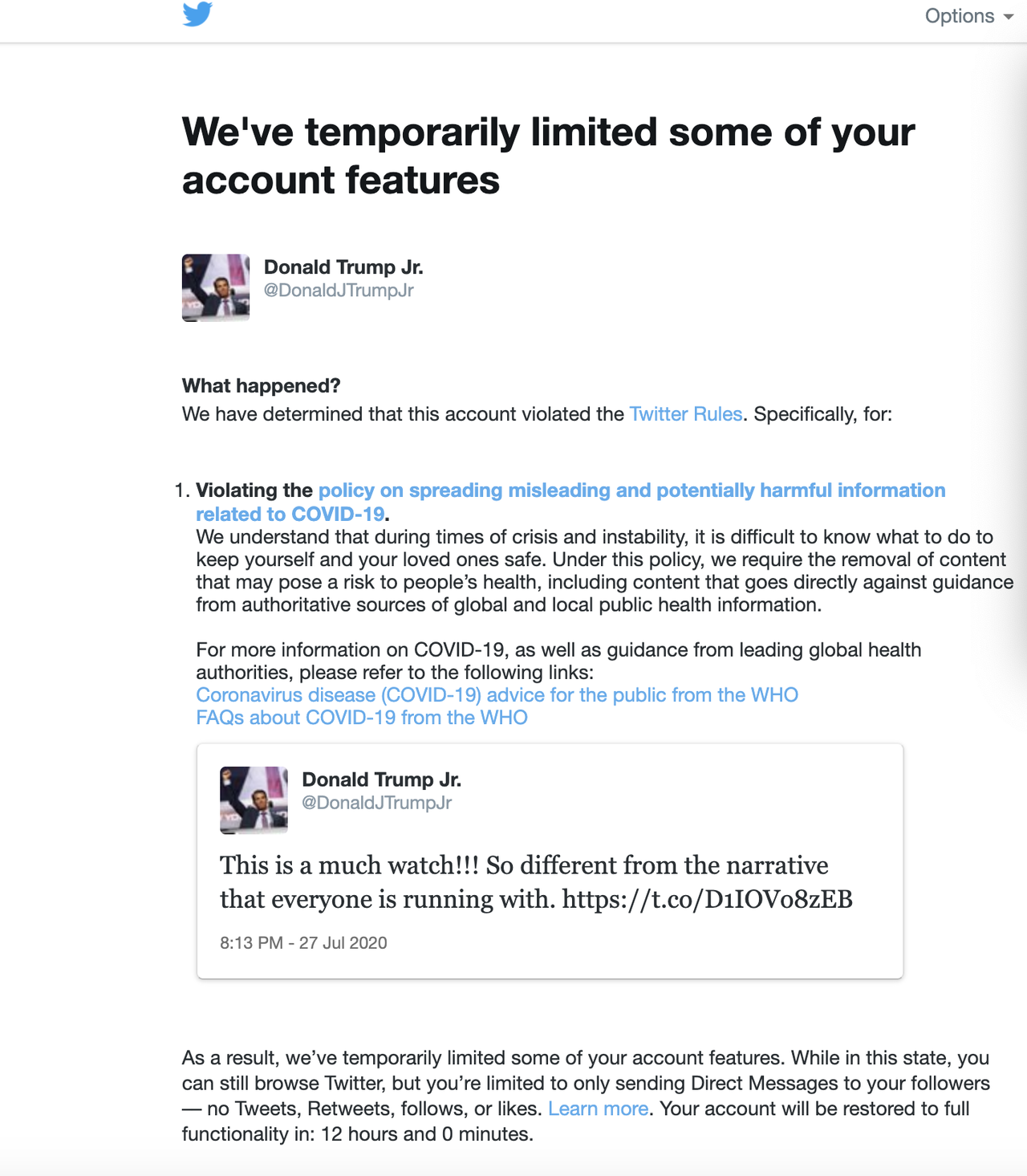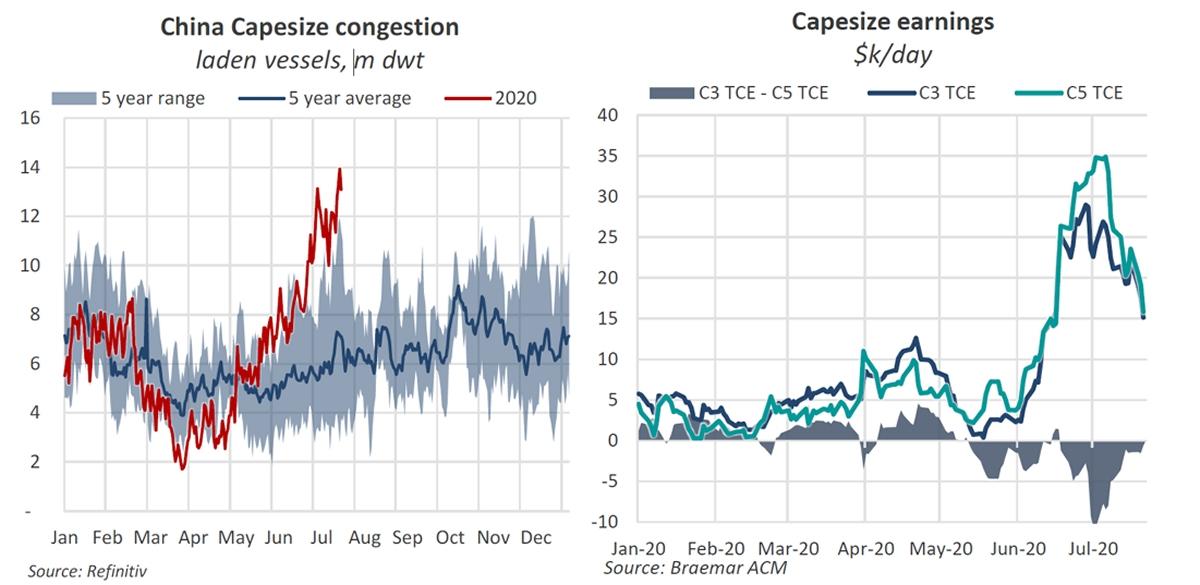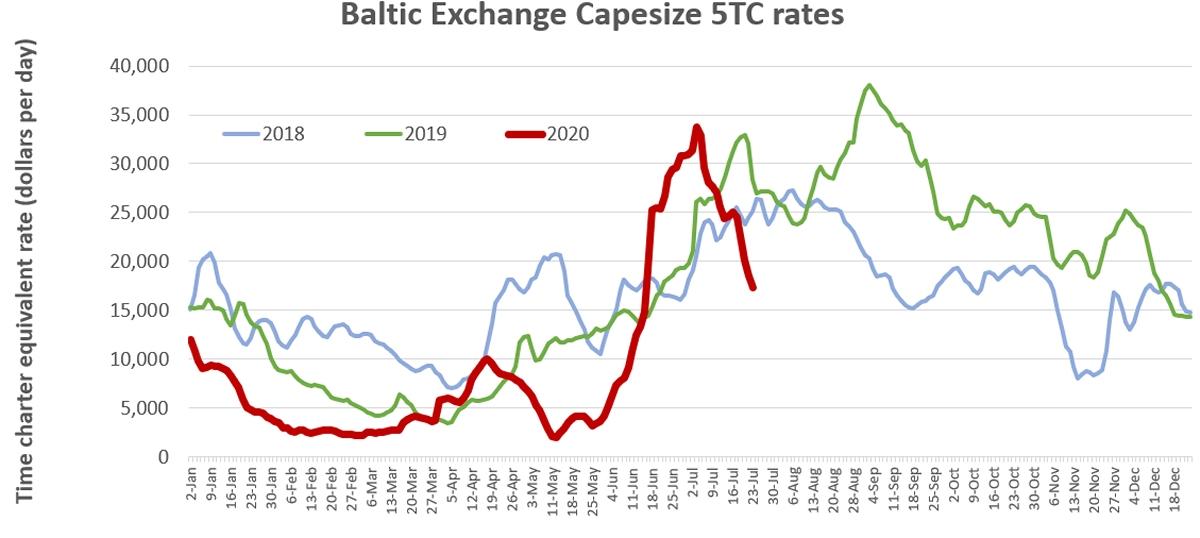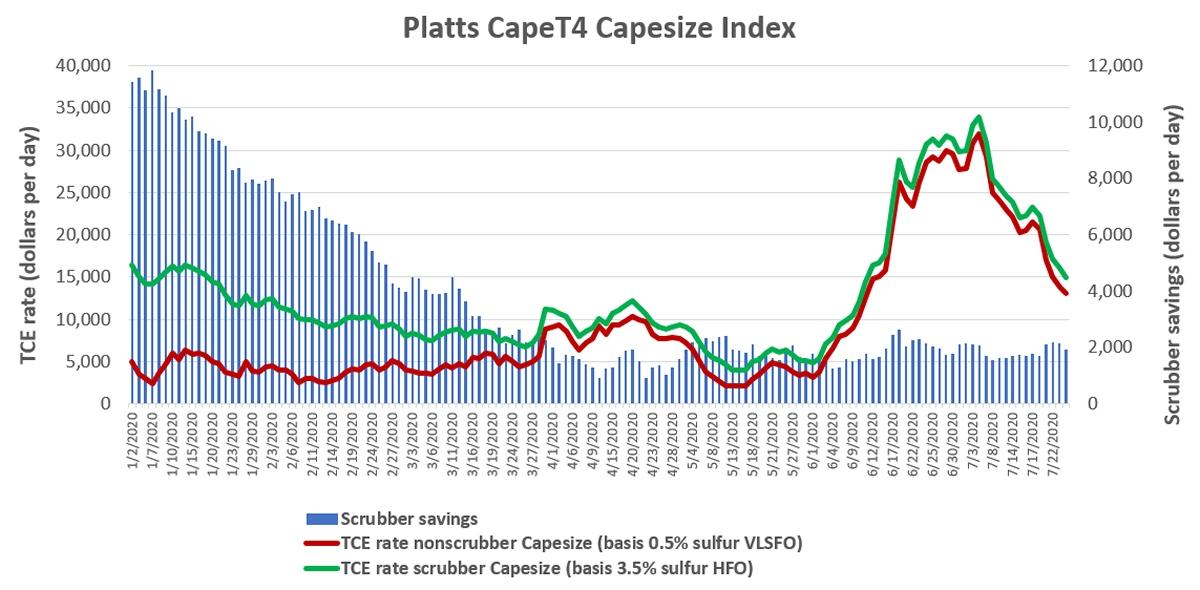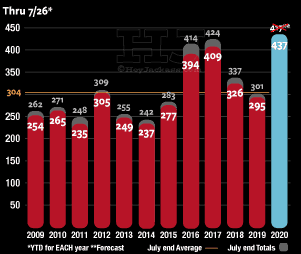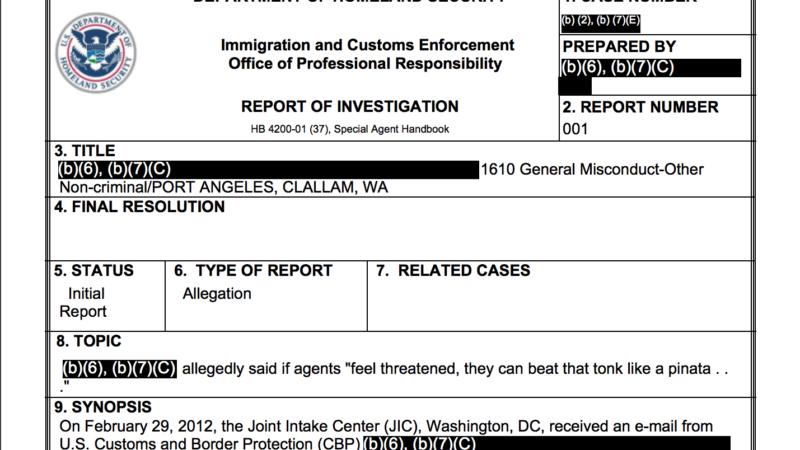[This is a serialization, with slight updates, of my 2012 article on the subject; for the Introduction (which also discusses my ambivalence about such laws), see this post.]
We’re finishing the discussion of state laws protecting employee speech with the narrowest ones, which are limited to signing petitions or contributing to campaigns. (All states also ban employer retaliation based on how a person voted.)
[A.] Signing Initiative, Referendum, Recall, or Candidate Petitions—Arizona, D.C., Georgia, Iowa, Minnesota, Missouri, Ohio, Oregon, Washington
These laws are narrow, but have become especially relevant given the recent debates about retaliation against people who signed anti-same-sex marriage initiative petitions. For an explanation of why the laws that ban threats and intimidation, without mentioning employment, likely apply to threats of dismissal for employment, see item 8 of this post.
Arizona: A person who … threatens any other person to the effect that the other person will or may be injured in his business, or discharged from employment, or that he will not be employed, to sign or subscribe, or to refrain from signing or subscribing, his name to an initiative or referendum petition [or recall] … is guilty of a … misdemeanor.
District of Columbia: Any person who … by threats or intimidation, interferes with, or attempts to interfere with, the right of any qualified registered elector to sign or not to sign any initiative, referendum, or recall petition, or to vote for or against, or to abstain from voting on any initiative, referendum, or recall measure … shall be [guilty of a misdemeanor].
Georgia: A person who, by menace or threat either directly or indirectly, induces or compels or attempts to induce or compel any other person to sign or subscribe or to refrain from signing or subscribing that person’s name to a recall application or petition … shall be guilty of a misdemeanor.
Iowa: A person commits the crime of election misconduct in the first degree if the person willfully … [i]ntimidates, threatens, or coerces, or attempts to intimidate, threaten, or coerce, a person … [t]o sign [or refrain from signing] a petition nominating a candidate for public office or a petition requesting an election for which a petition may legally be submitted.
Louisiana: No person shall knowingly, willfully, or intentionally … [i]ntimidate … directly or indirectly, any voter or prospective voter in matters concerning voting or nonvoting or voter registration or nonregistration, or the signing or not signing of a petition, including but not limited to any matter concerning the voluntary affiliation or nonaffiliation of a voter with any political party.
Minnesota: A person may not use threat, intimidation, coercion, or other corrupt means to interfere or attempt to interfere with the right of any eligible voter to sign or not to sign a recall petition of their own free will.
Missouri: [It shall be a misdemeanor o]n the part of any employer [to] mak[e], enforc[e], or attempt[] to enforce any order, rule, or regulation or adopt[] any other device or method to prevent an employee from … signing, or subscribing his name to any initiative, referendum, or recall petition, or any other petition circulated pursuant to law … .
Ohio: No person shall, directly or indirectly, by intimidation or threats, influence or seek to influence any person to sign or abstain from signing, or to solicit signatures to or abstain from soliciting signatures to an initiative or referendum petition.
Oregon: [No person may] directly or indirectly subject any person to undue influence [defined to include “loss of employment or other loss or the threat of it”] with the intent to induce any person to … [s]ign or refrain from signing a prospective petition or an initiative, referendum, recall or candidate nominating petition.
Washington: Every person is guilty of a gross misdemeanor who … [i]nterferes with or attempts to interfere with the right of any voter to sign or not to sign an initiative or referendum [or recall] petition or with the right to vote for or against an initiative or referendum measure [or recall] by threats, intimidation, or any other corrupt means or practice … .
[B.] Giving Campaign Contributions—Louisiana, Massachusetts, Oregon
These statutes are limited to discrimination based on making a contribution. (More states ban discrimination based on a refusal to make a contribution.)
Louisiana: No person based on an individual’s contribution, promise to make a contribution, or failure to make a contribution to influence the nomination or election of a person to [any political office] shall directly or indirectly affect an individual’s employment by means of [discrimination in favor or against the person in employment, or threat of such discrimination].
Massachusetts: No person shall, by threatening to [discriminate against or in favor of an employee] … attempt to influence a voter to give or to withhold his vote or political contribution. No person shall, because of the giving or withholding of a vote or a political contribution, [discriminate against or in favor of an employee].
Oregon: [No person may] directly or indirectly subject any person to undue influence [defined to include loss of employment or other loss or the threat of it] with the intent to induce any person to … [c]ontribute or refrain from contributing to any candidate, political party or political committee.
Louisiana also has a more general protection for political activity, discussed in an earlier post, which would likely include campaign contributions.
[C.] Exercising the “Elective Franchise” or “Suffrage,” Which Might Include Signing Referendum, Initiative, or Candidate Nominating or Recall Petitions—Hawaii, Idaho, Kentucky, Tennessee, West Virginia, Wyoming, and Guam
Some jurisdictions ban retaliation or threat of retaliation related to the “free exercise of the elective franchise” or to “suffrage.” This might just mean with regard to voting, a prohibition that would rarely be triggered because voting is now generally secret.
But it could also be read as extending to the signing of referendum or initiative petitions, and perhaps to other forms of political activity, such as signing candidate nominating or recall petitions. Thus, for instance, the Wyoming Supreme Court has described—albeit in a slightly different context—the signing of initiative and referendum petitions as “relat[ing] to the elective franchise.” Maryland’s highest court likewise concluded that “the right to have one’s signature counted on a nominating petition [for a candidate] is integral to that political party member’s right of suffrage[,]” which suggests that signing a referendum petition is also included within the right of suffrage. An Oregon Attorney General’s opinion took the same view as to the signing of recall petitions, as did an Ohio court decision (though with regard to the phrase “exercising [the] elective franchise”).
The Idaho Supreme Court concluded that “[t]he right of citizens to organize, and give expression and effect to their political aspirations through political parties is inherent in, and a part of, the right of suffrage.” The Nebraska Supreme Court held that “the right of persons to combine according to their political beliefs and to possess and freely use all the machinery for increasing the power of numbers by acting as a unit to effect a desired political end” is “[i]nherent[]” in the right to “exercise of the elective franchise.” And several cases have generally endorsed the proposition that “[t]he right of suffrage includes the right to form political parties.”
For an explanation of why the statutes that generally ban threats also likely apply to threats of loss of employment, see item 8 of this post.
Hawaii: Every person who, directly or indirectly, personally or through another, makes use of, or threatens to make use of, any force, violence, or restraint; or inflicts or threatens to inflict any injury, damage, or loss in any manner, or in any way practices intimidation upon or against any person in order to induce or compel the person to vote or refrain from voting, or to vote or refrain from voting for any particular person or party, at any election, or on account of the person having voted or refrained from voting, or voted or refrained from voting for any particular person or party; or who by abduction, distress, or any device or contrivance impedes, prevents, or otherwise interferes with the free exercise of the elective franchise [shall be deemed guilty of a crime].
Idaho: Every person who, by force, threats, menaces, bribery, or any corrupt means, either directly or indirectly attempts to influence any elector in giving his vote, or to deter him from giving the same, or attempts by any means whatever, to awe, restrain, hinder or disturb any elector in the free exercise of the right of suffrage … is guilty of a misdemeanor.
Kentucky: No person shall coerce or direct any employee to vote for any political party or candidate for nomination or election to any office in this state, or threaten to discharge any employee if he votes for any candidate, or discharge any employee on account of his exercise of suffrage … .
Pennsylvania: Any person or corporation who, directly or indirectly … by abduction, duress or coercion, or any forcible or fraudulent device or contrivance, whatever, impedes, prevents, or otherwise interferes with the free exercise of the elective franchise by any voter, or compels, induces, or prevails upon any voter to give or refrain from giving his vote for or against any particular person at any election … shall be guilty of a misdemeanor … .
Tennessee: It is unlawful to discharge any employee on account of such employee’s exercise or failure to exercise the suffrage, or to give out or circulate any statement or report calculated to intimidate or coerce any employee to vote or not to vote for any candidate or measure.
West Virginia: Any person who shall, directly or indirectly, by himself, or by any other person on his behalf, make use of, or threaten to make use of, any force, violence or restraint, or inflict, or threaten to inflict, any damage, harm or loss, upon or against any person, or by any other means attempt to intimidate or exert any undue influence, in order to induce such person to vote or refrain from voting, or on account of such person having voted or refrained from voting, at any election, or who shall, by abduction, duress or any fraudulent device or contrivance, impede or prevent the free exercise of the suffrage by any elector, or shall thereby compel, induce or prevail upon any elector either to vote or refrain from voting for or against any particular candidate or measure … [i]s guilty of a misdemeanor.
Wyoming: [Criminal intimidation] consists of [i]nducing, or attempting to induce, fear in an … elector by use of threats of force, violence, harm or loss, or any form of economic retaliation, for the purpose of impeding or preventing the free exercise of the elective franchise … .
Guam: Every person is guilty of a felony who, by force, threats, menace, bribery or any corrupt means, either directly or indirectly, attempts to influence any voter in giving his vote, or to deter him from giving it, or attempts by any means whatever to threaten, restrain, hinder, or disturb any voter in the exercise of the right of suffrage.

from Latest – Reason.com https://ift.tt/3hPxJIZ
via IFTTT

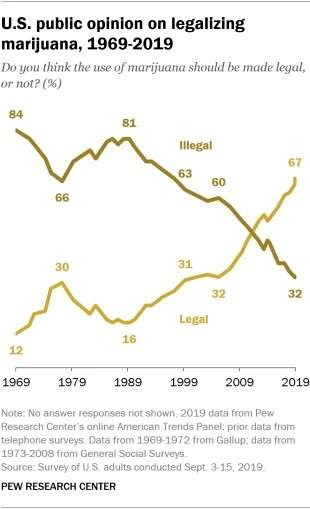 According to Pew polling data, support for full legalization crossed the 50 percent threshold back in 2010 and has been growing ever since. Much like support for gay marriage recognition, this seems to be a permanent cultural shift in attitudes.
According to Pew polling data, support for full legalization crossed the 50 percent threshold back in 2010 and has been growing ever since. Much like support for gay marriage recognition, this seems to be a permanent cultural shift in attitudes.